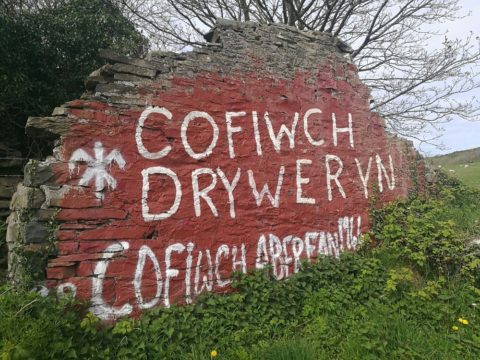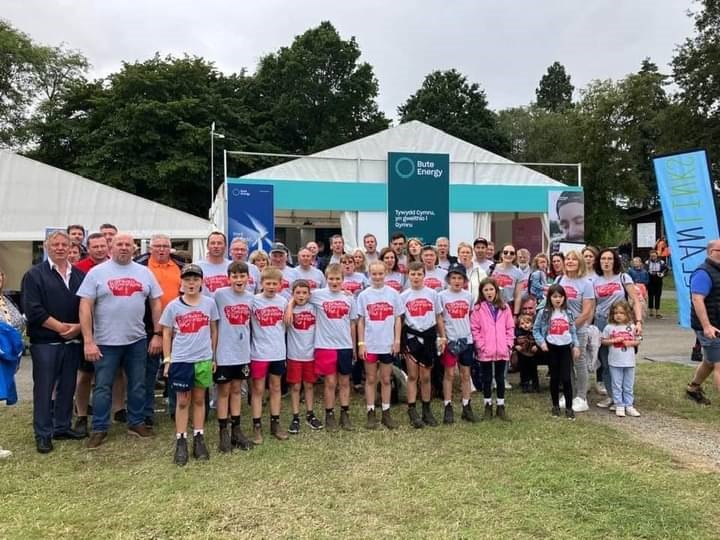The slogan for the controversial Tryweryn valley drowning (despite protests and opposition from local MPs against it), was Cofiwch Dryweryn (“Remember Tryweryn”) and this became a symbol reminding people not to forget the destruction of the landscape and the community. The wall on which the slogan is painted is an unofficial memorial to the event.

Many years later, when a new threat of destruction came along from companies wanting to inflict damage on the countryside in the form of pylon lines, the slogan took on new life as Cofiwch Ddyffryn Tywi a call to arms for No Pylons/Dim Peilonau in the Tywi Valley. This, appears on t-shirts and banners and has become a motto for the resistance to another project for profit as can be seen here in the silent protest at the Royal Welsh Show.

One of the main issues, among the many, of the pylon route is the impact on the landscape and all the treasures it contains in terms of history, heritage, wildlife and communities of people who both live in the valley and those who come to enjoy all the wonderful things it offers. The Welsh Tourist Board and local Leisure and Tourism organisations are all promoting the very things that may well be lost in the ‘greenrush‘ for renewables and Net Zero.
So, it was interesting to see that a new series is being filmed in and around Llandovery that explores the historical impact of the Tryweryn valley and the loss of ancient farmland and the ongoing effects. Dŵr | Still Waters: A Tale of Betrayal and Redemption
Carmarthenshire County Council has been working closely with the production team finding locations and Cllr Hazel Evans, Cabinet Member for Regeneration, Leisure, Culture & Tourism, commented on the significance of the series:
“We are thrilled to welcome … Dŵr | Still Waters to Carmarthenshire. This series not only highlights the stunning landscapes of Carmarthenshire but also provides a fantastic opportunity for our local economy. We look forward to supporting the production team and ensuring that our community benefits from the filming while showcasing the rich stories our region has to offer.”
Wales’s mountains, beaches, and castles have been popular filming locations for many TV series and have attracted many production companies over the years. Hard to imagine how the rugged beauty portrayed in so many scenes will look with pylons and windfarms as a backdrop and what a loss it will be in terms of revenue it will be if Wales ceases to be a go to location for those production companies who have used it in the past.
So, can we hope that the recognition of the stunning landscapes and the rich stories of the region will be at the forefront of our local, regional and Westminster politicians minds when decisions need to be made about the potential devastation of them? We have to hope so and hope that some lessons have been learnt from the past in how difficult it is to manage the loss of so much in the pursuit of profit.